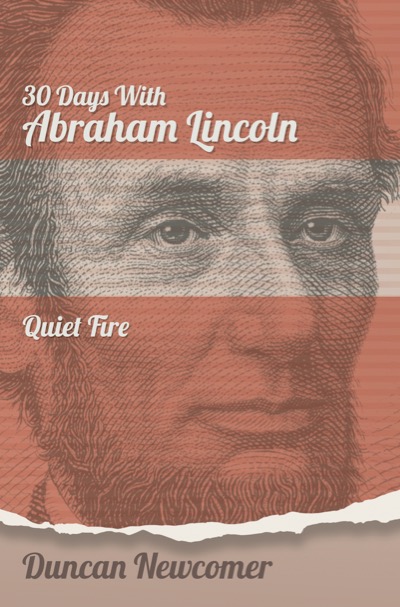By MARK JACOBS
Contributing Columnist
For many years I have had a room in my house dedicated to Abraham Lincoln.
It is adorned exclusively with a variety of Lincoln-related memorabilia, photos and books, and is referred to, of course, as our “Lincoln Room.” Some people find it intriguing, others think it’s humorous, and some just think it’s weird.
I don’t care what they think. I love that room. I take my Lincoln very seriously.
I am hardly alone. About 15,000 books have been written about Lincoln, more than any other person in history except Jesus Christ. There are monuments to Lincoln throughout the U.S. and around the world, from Mexico to Moscow. The man who once described his youth as nothing more than “the short and simple annals of the poor” continues to hold a fascination to millions of people, some 158 years after his death.
Anyone who has seriously studied Lincoln—from the recognized experts to the casual fans—understands what Lincoln historian Doris Kearns Goodwin meant when she said, “The more I study Lincoln the more I love him.”
We have learned that he was the unlikeliest of heroes who just happened to find himself at the center of the most momentous period in American history.
Historians typically rate Lincoln as the greatest president of all-time, but the path of his life hardly suggested that greatness would be his destiny. His personal life was often in shambles, beset by death, failures and profound sadness. He was regularly dismissed, ridiculed and underestimated. He had very few friends.
Yet he somehow persevered and will be forever credited for saving the U.S. and re-shaping the world. His death at age 56 by an assassin’s bullet—on Good Friday, no less—just a few days after finally achieving victory in the brutal Civil War, only adds to the Shakespearean drama of his life.
For years I only focused on Lincoln’s legendary accomplishments, which were indeed lengthy: self-taught, successful country lawyer, extraordinary orator and writer of the Emancipation Proclamation and the Gettysburg Address, considered the greatest speech in U.S. history, and so on. Many Americans know about these things, if only on a surface level.
But I have come to realize that these accomplishments are only half the story. The real Lincoln story, to me, is how a man plagued with so many personal struggles could function—and miraculously, triumph—under such extraordinary circumstances. We can all relate to dealing with setbacks, but Lincoln’s struggles seem incomprehensible, almost fiction-like, as if he were the central character in a Greek tragedy.
He had always known sadness. His mother died when he was 9, his father was abusive, his only sibling died when he was 19, his first love—which many experts believe was the only true love of his life—died when he was 26. Two of his children died at young ages. He lost 8 elections, had a nervous breakdown and had to declare bankruptcy.
He often spoke about suicide during those early years, once causing a friend to write, “Lincoln went crazy … had to remove razors from his room—take away all Knives and other such dangerous things—it was terrible.”
Lincoln himself wrote at the time: “I am now the most miserable man living. If what I feel were equally distributed to the whole human family, there would not be one cheerful face on the earth.”
When he won the presidential election of 1860, he was the most hated man in half the country. The South didn’t just oppose him, they despised him. An Atlanta newspaper wrote that the South “will never submit to such humiliation and degradation as the inauguration of Abraham Lincoln.” A slew of Southern states immediately succeeded from the Union, thus making civil war imminent.
Despite his Inauguration plea to the South that “We must not be enemies,” a full-scale war broke out within weeks, and no one thought Lincoln was up to the task, including his own cabinet.
He suffered from insomnia and would often roam the streets of Washington alone at night. The war that many expected to last just a few weeks dragged on with a steady and staggering number of casualties. In all, over 2% of the American population died in the Civil War. As a percentage of America’s population today that number would be well over 6,000,000 people.
Lincoln attempted to project confidence, but the weight of his burdens took a huge emotional toll on him. At one particularly dark time in 1863 he wrote, “If there is a place worse than hell, I’m in it.”
His marriage was not a source of comfort or stability. Mary Lincoln was prone to erratic behavior and bouts of depression. They had already lost a child, Edward (“Eddie”), who was 3 years old when he died from tuberculosis. During Lincoln’s first full year in office, his beloved son, Willie, died at age 11 from typhoid fever. The boy’s death devastated the Lincolns, and they never recovered. Lincoln was seen sobbing and Mary was inconsolable. She later hosted a series of seances to speak with Willie, which Lincoln sometimes attended.
But Lincoln had little time to grieve, as the war showed no signs of letting up. Many of his closest advisers counseled him to negotiate a peace with the South—to essentially surrender—but he was steadfast in his belief that the preservation of the union was non-negotiable.
A lesser man—essentially anyone else—would have easily succumbed to the temptation to allow the nation to split into two. Had he done so, the world would have surely taken on a different trajectory.
Historians have long speculated that if the South had become a separate country, North America would have eventually been comprised of a collection of different countries, just like Europe. If so, then the absence of a strong United States would have likely changed the outcome of the two global wars that ensued in the following century.
It is thus not hyperbole to suggest that Lincoln ultimately saved not only the U.S. but altered the course of world history.
Where did Lincoln’s strength come from? He was not a religious man. He once famously said “when I do good, I feel good, when I do bad, I feel bad. That’s my religion.“ Perhaps it was his sense of humor that allowed him to overcome adversity, even if it masked a deeper melancholy.
When once accused of being nothing more than a two-faced politician, Lincoln smiled, pointed to his face and said, “if I really had two faces, do you think I’d wear this one?”
When asked how he dealt with the reality that so many people hated him, he would say “there’s always some fleas a dog can’t reach.”
Lincoln’s legacy as the man who freed the slaves and saved the Union is forever preserved. But there is another legacy that will always astonish me. In the face of endless tragedies and dire circumstances all around him, he was somehow able to clear his mind, persevere, and defeat any obstacle that threatened to destroy him.
That’s a powerful life lesson that we—and this nation—would do well to remember today and forever.
.
Mark Jacobs is an attorney and long-time community activist. He is the co-founder and co-director of the Coalition for Black and Jewish Unity and the co-founder and chair of the Legal Referral Service at Jewish Family Services, a pro bono program that has provided legal aid to people in need for the past 15 years.
.
Care to Read More in our Fourth of July 2023 series on Lincoln?
Whatever you choose to read next, you will find the following links to the other 2023 columns at the bottom of each page:
Lincoln scholar Duncan Newcomer’s introduction to this series includes a salute to Braver Angels, a nationwide nonprofit dedicated to de-polarizing American politics that is gathering from across the country for a major conference at Gettysburg this week.
Duncan also writes about: What were Lincoln’s hopes for our nation?
And, he explores: What were Lincoln’s core values?
Then, journalist and author Bill Tammeus writes about how Abraham Lincoln’s Gettysburg Address still calls us to reach out to one another.
Journalist and author Martin Davis asks: Are our battle-scarred American roads capable of carrying us toward unity?
Author and leadership coach Larry Buxton writes about: Growing up and growing wise with Abraham Lincoln
Columnist and editor Judith Pratt recalls: Hearing our Civil War stories shared generation to generation.
Attorney and community activist Mark Jacobs writes about: How Lincoln’s astonishing resilience and perseverance inspires me today
.
.
 Want the book?
Want the book?
GET A COPY of Duncan’s 30 Days with Abraham Lincoln—Quiet Fire.
Each of the 30 stories in this book includes a link to listen to the original radio broadcasts. The book is available from Amazon in hardcover, paperback and Kindle versions.
.

